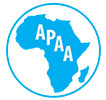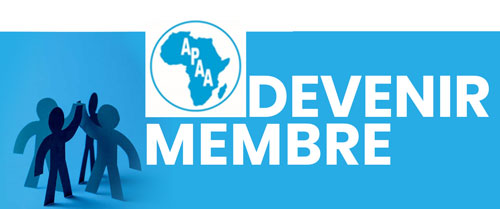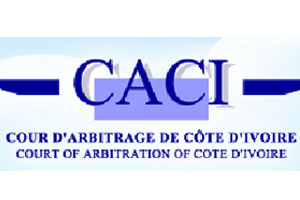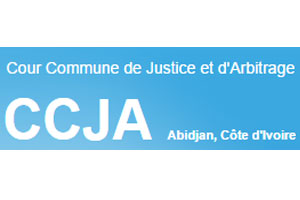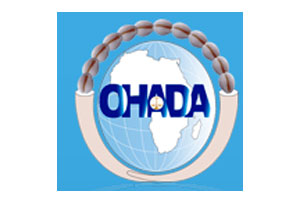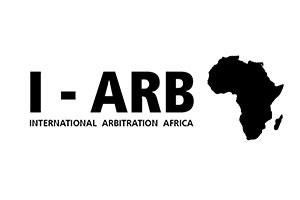The Launch of the African Arbitration Association
AfDB Headquarters, Abidjan, 29 June 2018
On 29 June 2018, the African Legal Support Facility (ALSF) and the African Development Bank (AfDB) organised a conference on Arbitration in Africa, which kindly hosted the launch of the African Arbitration Association (AfAA) in Abidjan. Mr Stephen Karangizi, the Director and CEO of the ALSF welcomed the participants and noted the need to bring together African stakeholders who deal with arbitration issues was long overdue considering the challenges faced by African countries in responding to and managing arbitration cases. In addition he pointed out the facility considered it as part of its role to promote arbitration as it is critical for investment and commercial interests of African countries. Mr Karangizi’s full speech can be accessed here.
The keynote address was delivered by Mr Godfrey Penn, who is the General Counsel and Director of Legal Affairs at the African Development Bank. Mr Penn acknowledged that “[m]any challenges still face Africa when talking about international arbitration: few international arbitration disputes are handled in African arbitral institutions; there is a lack of awareness of arbitration processes and procedures among counsel and judges; and few African arbitrators are nominated in international arbitrations related to Africa. We need to use the diversity of the continent to our advantage; one way forward is to work together to promote and progress arbitration in Africa and the new African Arbitration Association intends to do just that and we all look forward to working on international arbitration in Africa for Africa.” Mr Penn’s speech can be accessed here.
Founded for the purpose of promoting the use of international arbitration and other forms of international dispute resolution on the African continent, the AfAA is the culmination of a process that involved a concerted effort from various stakeholders. Such efforts included calls by African dispute resolution specialists to work towards the creation of an association to promote the use of African arbitration institutions, practitioners and arbitrators. In this respect, Chief Bayo Ojo SAN said “the AfAA stands to promote, encourage, facilitate and advance the use of international arbitration to build an enabling environment for investment and sustainable development within the African continent.”
There was also positive momentum created by the series of annual Arbitration in Africa conferences hosted by SOAS 2015-2018. The primary convener of these conferences, Dr Emilia Onyema said, “[we] at SOAS are honoured that our research on the development of arbitration in Africa has contributed to the establishment of the AfAA, whose ideals we fully support.”
Additionally, the Consultative Workshop on Cooperation among African Arbitration Initiatives organised by the International Council for Commercial Arbitration (ICCA) Congress, which was first held in Mauritius in May 2016 played a significant role in the establishment of the AfAA. Ms Lise Bosman of ICCA said, “ICCA is delighted to have contributed to the establishment of AfAA through a series of Consultative Workshops hosted by ICCA in Mauritius, Cairo, Abuja and Kigali. We wish AfAA well in bringing together existing initiatives and promoting cooperation in arbitral practice across the continent.”
President Abdulqawi Ahmed Yusuf of the ICJ, who was originally scheduled to deliver the keynote address, was unfortunately unable to participate. However, he expressed his delight that “efforts to establish a home for African Arbitration practitioners, including the consultative workshops that started in 2016 at the ICCA Congress in Mauritius, have now finally borne fruit with the establishment of the African Arbitration Association. Today, Arbitration has come to age in Africa. Raising awareness on the African expertise available, as well as training and capacity-building initiatives, should be our new priorities with the Association.”
The elected officers of the AfAA are Chief Bayo Ojo, SAN, who is the AfAA’s first President, Dr Gaston Kenfack and Ms Njeri Kariuki, are the Vice Presidents and Dr Rukia Baruti will serve as the first Secretary General of the AfAA. Other Board Members include Mrs Doyin Rhodes-Vivour, Dr Emilia Onyema, Dr Fidele Masengo, Mr Fui Tsikata, Dr Ismail Selim, Mr Julius Nkafu, Ms Leyou Tameru, Ms Lise Bosman, Mr Thierry Ngoga and Mr Vlad Movshovich.
In selecting the Board Members, it was important to the founders to ensure diversity not only in terms of gender balance and representing the different regions in Africa but also in terms of representing the languages spoken. Accordingly, the official languages of the AfAA are Arabic, English, French and Portuguese, with English and French being the working languages.
The founders of the AfAA elected Kigali as the seat for its ease of access from other African countries. The Kigali International Arbitration Centre (KIAC) has kindly offered to host the AfAA in Rwanda. The KIAC registrar, Dr Fidele Masengo says, “The AfAA is an organization we were waiting for to boost arbitration on the African continent. Hosting the association in Rwanda was a very wise decision. Rwanda is a pro-arbitration country. It enjoys a modern pro-arbitration legal framework inspired by UNCITRAL Model law. It is the mother country to Kigali International Arbitration, a centre that is now growing to be amongst the leading international arbitration institutions on the continent. Rwanda is also known to be a very accessible country to all citizens of the world who get their visas upon arrival. We welcome the new association. Murakaze Neza, Karibu, You are welcome, Bienvenus, De Nada!”
Amongst other things, the AfAA aims to increase coordination of Africa-related international arbitration/ADR activities; to be the platform for African international arbitration practitioners and African arbitration institutions; to provide greater access to information about arbitrating in Africa; and to enhance awareness of existing capacity-building initiatives relating to arbitration in Africa.
